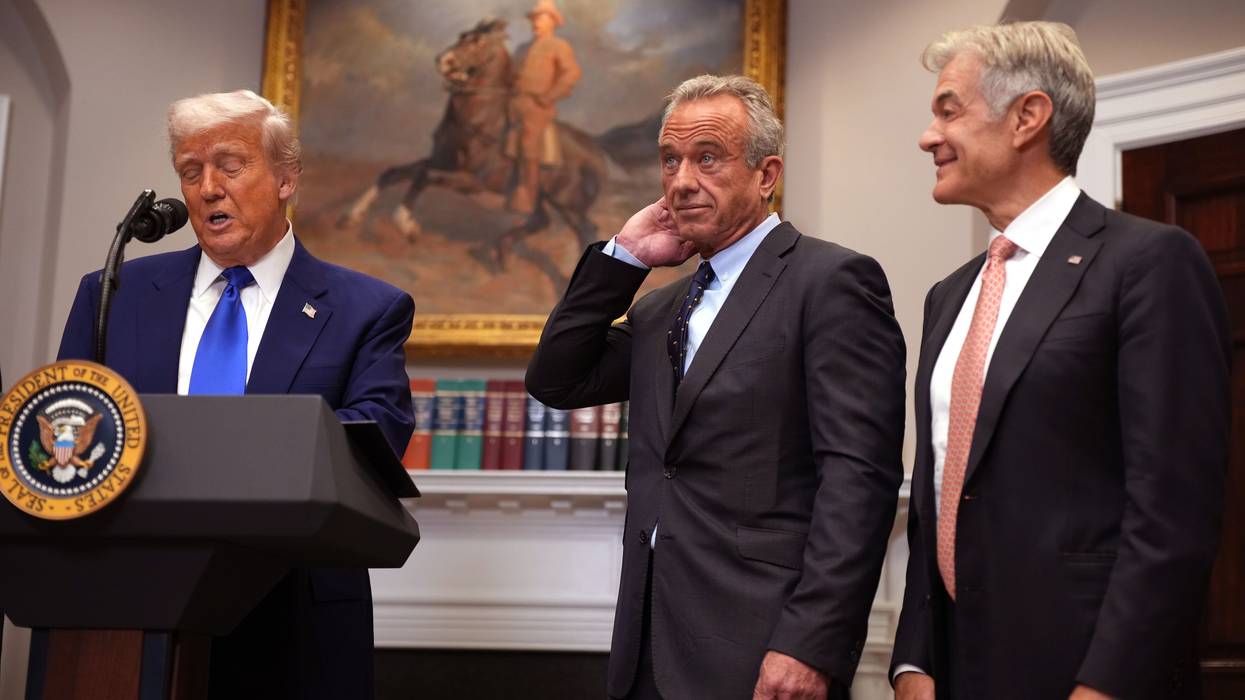On Thursday, Venezuela's National Assembly—which is led by the acting president's brother, Jorge Rodríguez—approved and Delcy Rodríguez signed legislation that "promises to give private companies control over the production and sale of oil and allow for independent arbitration of disputes," according to the Associated Press.
As AP reported:
Rodríguez's government expects the changes to serve as assurances for major US oil companies that have so far hesitated about returning to the volatile country. Some of those companies lost investments when the ruling party enacted the existing law two decades ago to favor Venezuela's state-run oil company, Petróleos de Venezuela SA, or PDVSA.
The revised law would modify extraction taxes, setting a royalty cap rate of 30% and allowing the executive branch to set percentages for every project based on capital investment needs, competitiveness, and other factors.
It also removes the mandate for disputes to be settled only in Venezuelan courts, which are controlled by the ruling party. Foreign investors have long viewed the involvement of independent courts as crucial to guard against future expropriation.
Malfred Gerig, a sociologist from Central University of Venezuela, said on social media that the Rodríguez siblings' United Socialist Party of Venezuela (PSUV) "has just approved the most anti-nationalist and damaging oil law since, at least, 1943. The absolute surrender of the state as an oil producer and a sudden conversion of the property rights of the Venezuelan nation into private rights of foreign companies."
Victor Lovera, an economics professor at Andres Bello Catholic University in Caracas, said that "it must be really fucking tough for the Rodríguez siblings to end up as the empire's lapdogs and open up the oil sector, taking us back to the 1970s, before the nationalization of oil. All just to cling to power for a few more months."
Trump—who returned to office a year ago with help from Big Oil's campaign cash—has made clear that his aggressive policy toward Venezuela is focused on the country's petroleum reserves, which critics have blasted as a clear effort to further enrich his donors and himself.
"Trump is deploying drone and gunboat diplomacy to coerce Venezuela into serving up its oil resources to Big Oil," said Robert Weissman, co-president of the US watchdog group Public Citizen, in a Thursday statement.
"Imperfectly, Venezuela has for most of the last century sought to manage its oil and gas reserves to advance its national interest, rather than that of outside investors," he noted. "Brutal sanctions and the threat of still more military action from the Trump regime are now forcing Venezuela to turn from that history and make its oil available to Big Oil at discount rates and to agree that investor disputes should be resolved at corporate-friendly international tribunals."
"This is imperial policy to benefit Big Oil, not Americans—and certainly not Venezuelans," Weissman stressed. "Even still, US oil companies are likely to be reluctant to invest heavily in Venezuela without US government guarantees—a likely next step in Trump’s oil imperialism, unless Congress moves proactively to block it."
Both chambers of the US Congress are narrowly controlled by Trump's Republican Party, and they have so far failed to pass war powers resolutions aimed at stopping more military action in Venezuela and the administration's bombings of boats allegedly smuggling drugs in international waters—all of which some American lawmakers and other experts have argued are illegal.
When Trump's secretary of state and acting national security adviser, Marco Rubio, testified before the Senate Foreign Relations Committee—on which he previously served—on Wednesday, he insisted that the president wasn’t planning for any more military action in Venezuela, but would take it, potentially without congressional authorization, in "self-defense."
Rubio also laid out how the United States intends to continue controlling Venezuelan oil and related profits, telling senators that Venezuela's government will submit periodic budgets, and as long as they comply with preset restrictions, the Trump administration will release funds from a US Treasury blocked account.
After the legislation passed Thursday, the Trump administration began easing sanctions on Venezuela's oil industry, with the Treasury issuing a general license authorizing certain activities involving Venezuelan-origin oil.




